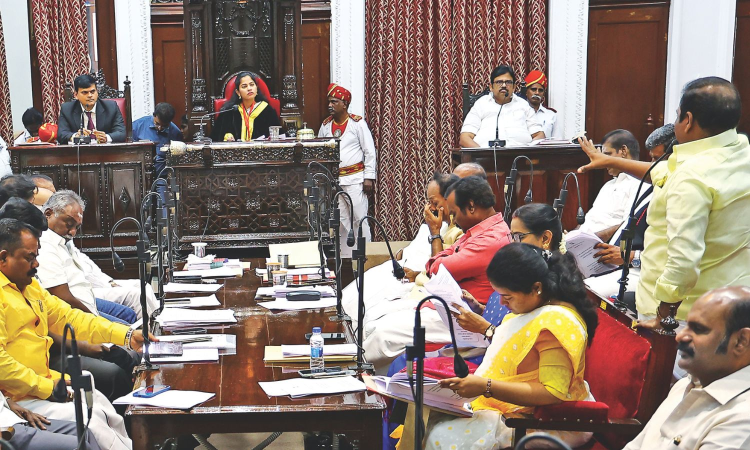
Introduction: A Transformative Initiative for Chennai’s Public Infrastructure
In an ambitious move to significantly enhance public sanitation, the Chennai Corporation has partnered with private players to build and renovate over 1,000 toilets across the city. This initiative is part of a broader effort to upgrade urban infrastructure, promote hygiene, and improve the quality of life for residents. With increasing urbanization and a growing emphasis on public health, this project is set to transform the sanitation landscape in Chennai, ensuring that clean, accessible toilet facilities are available to all.
Project Overview: Goals and Objectives
The primary objective of the project is to overhaul Chennai’s existing public sanitation facilities and introduce state-of-the-art toilets that meet modern hygiene standards. Key goals include:
Infrastructure Upgradation: Renovating old and dilapidated toilet blocks while constructing new facilities in high-traffic areas.
Improved Hygiene: Implementing modern sanitation technologies and regular maintenance protocols to ensure cleanliness and prevent the spread of diseases.
Accessibility and Inclusivity: Ensuring that facilities are accessible to all segments of the population, including differently-abled individuals, thereby promoting inclusivity.
Sustainable Practices: Integrating eco-friendly solutions such as water-saving fixtures and solar-powered lighting to reduce environmental impact and promote sustainable urban living.
Role of Private Players: Bringing Expertise and Efficiency
The involvement of private players is a critical component of this initiative. Their participation is expected to bring in expertise, efficient project management, and innovative solutions that are crucial for executing large-scale infrastructure projects. Key aspects of their role include:
Financing and Investment: Private entities are expected to contribute not only through technical expertise but also by mobilizing investments, thereby reducing the financial burden on the public sector.
Technical Innovation: With experience in large infrastructure projects, private companies will introduce modern designs and technologies that improve the durability and functionality of the toilets.
Operational Efficiency: Leveraging best practices from the private sector, the project aims to ensure timely completion and high-quality maintenance of facilities post-construction.
Partnership Model: The public-private partnership model fosters collaboration between government bodies and private firms, creating a framework where both parties benefit from improved urban infrastructure and enhanced public services.
Implementation Strategy: Phased Rollout and Quality Assurance
The project will be executed in multiple phases to ensure systematic development and efficient resource allocation. The implementation strategy includes:
Site Identification: Prioritizing areas with the greatest need, such as transport hubs, busy marketplaces, and public parks.
Design and Construction: Engaging with architectural firms and sanitation experts to design facilities that are both functional and aesthetically pleasing.
Maintenance and Monitoring: Establishing a robust system for regular maintenance, supported by digital monitoring and real-time feedback mechanisms, to ensure that the toilets remain clean and operational.
Community Engagement: Launching awareness campaigns to educate the public on the benefits of improved sanitation and encourage community participation in maintenance efforts.
Economic and Social Impact: Beyond Basic Sanitation
The project is expected to yield multiple benefits that extend beyond improved public hygiene. Among the anticipated impacts are:
Public Health Benefits: Clean sanitation facilities are essential for reducing the spread of communicable diseases and improving overall public health, especially in densely populated urban areas.
Job Creation: The construction, maintenance, and management of these facilities will create employment opportunities, contributing to the local economy.
Urban Aesthetics and Tourism: Modern, well-maintained public amenities enhance the visual appeal of the city and can have a positive impact on tourism, as travelers are more likely to visit cities known for their cleanliness and efficiency.
Environmental Sustainability: Incorporating sustainable practices not only reduces water and energy consumption but also sets a precedent for future eco-friendly urban projects.
Challenges and Future Prospects
Despite its promise, the project faces challenges such as ensuring consistent quality across diverse locations, coordinating between multiple stakeholders, and managing long-term maintenance. However, with a robust framework and clear accountability measures, these challenges can be effectively managed. The successful implementation of this initiative could serve as a model for other cities in India, paving the way for widespread adoption of public-private partnerships in urban sanitation projects.
Conclusion: A Step Forward for Chennai
The decision to privatize the building and renovation of over 1,000 toilets across Chennai represents a significant leap forward in urban infrastructure development. By combining the strengths of the public and private sectors, Chennai is set to achieve remarkable improvements in public sanitation, which will not only enhance the quality of life for its residents but also contribute to the city’s overall growth and sustainability. As the project unfolds, it is poised to become a benchmark for similar initiatives across the country, illustrating the power of innovative public-private collaboration in shaping the future of urban living.










